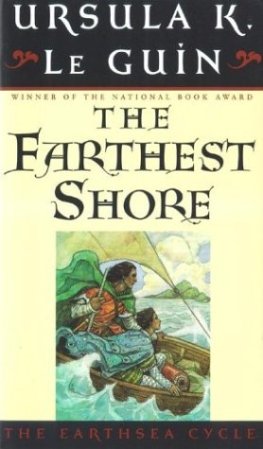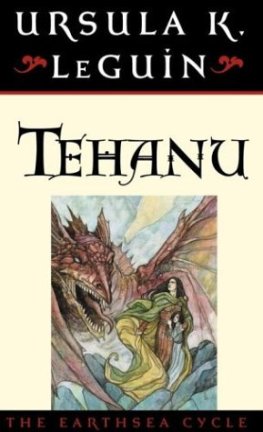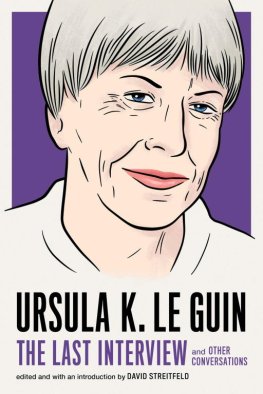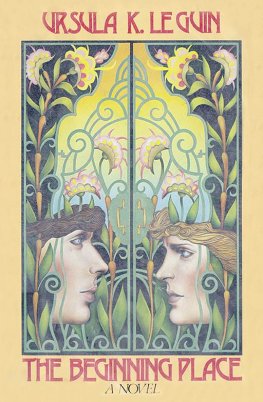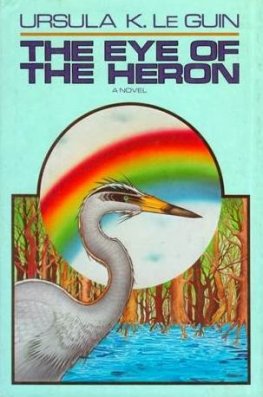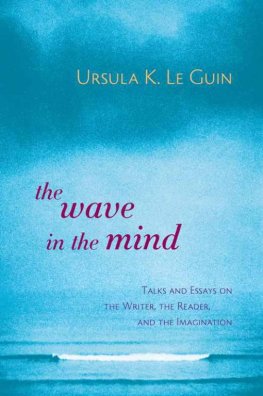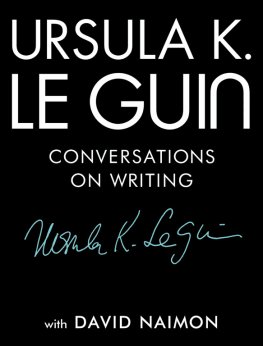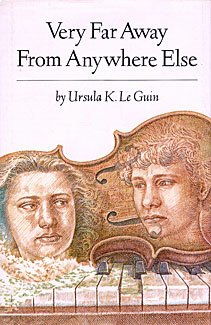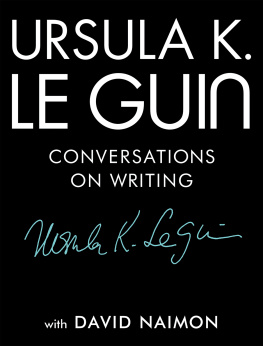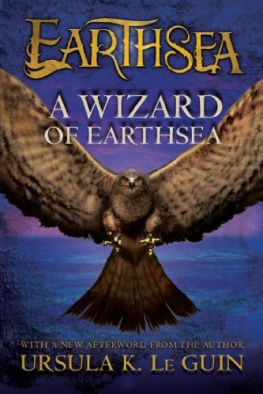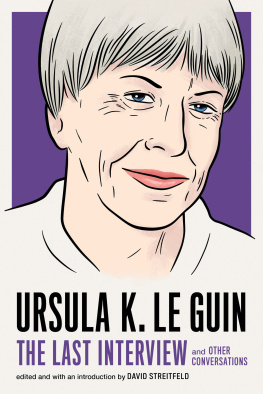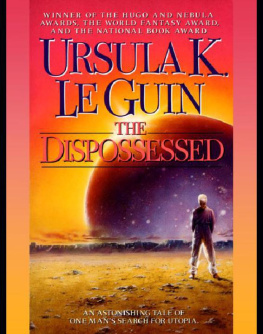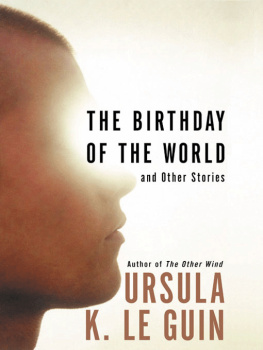Ursula Le Guin - A Fisherman of the Inland Sea
Here you can read online Ursula Le Guin - A Fisherman of the Inland Sea full text of the book (entire story) in english for free. Download pdf and epub, get meaning, cover and reviews about this ebook. genre: Science fiction. Description of the work, (preface) as well as reviews are available. Best literature library LitArk.com created for fans of good reading and offers a wide selection of genres:
Romance novel
Science fiction
Adventure
Detective
Science
History
Home and family
Prose
Art
Politics
Computer
Non-fiction
Religion
Business
Children
Humor
Choose a favorite category and find really read worthwhile books. Enjoy immersion in the world of imagination, feel the emotions of the characters or learn something new for yourself, make an fascinating discovery.

- Book:A Fisherman of the Inland Sea
- Author:
- Genre:
- Rating:4 / 5
- Favourites:Add to favourites
- Your mark:
- 80
- 1
- 2
- 3
- 4
- 5
A Fisherman of the Inland Sea: summary, description and annotation
We offer to read an annotation, description, summary or preface (depends on what the author of the book "A Fisherman of the Inland Sea" wrote himself). If you haven't found the necessary information about the book — write in the comments, we will try to find it.
A Fisherman of the Inland Sea — read online for free the complete book (whole text) full work
Below is the text of the book, divided by pages. System saving the place of the last page read, allows you to conveniently read the book "A Fisherman of the Inland Sea" online for free, without having to search again every time where you left off. Put a bookmark, and you can go to the page where you finished reading at any time.
Font size:
Interval:
Bookmark:
Another Story, or
A Fisherman of the Inland Sea
Ursula K. Le Guin
To the Stabiles of the Ekumen on Hain, and to Gvonesh, Director of the Churten Field Laboratories at Ve Port: from Tiokunann Hideo, Farmholder of the Second Sedoretu of Udan, Derdannad, Oket, on O.
I shall make my report as if I told a story, this having been the tradition for some time now. You may, however, wonder why a farmer on the planet O is reporting to you as if he were a Mobile of the Ekumen. My story will explain that. But it does not explain itself. Story is our only boat for sailing on the river of time, but in the great rapids and the winding shallows, no boat is safe.
So: once upon a time when I was twenty-one years old I left my home and came on the NAFAL ship Terraces of Darranda to study at the Ekumenical Schools on Hain.
The distance between Hain and my home world is just over four light-years, and there has been traffic between O and the Hainish system for twenty centuries. Even before the Nearly As Fast As Light drive, when ships spent a hundred years of planetary time instead of four to make the crossing, there were people who would give up their old life to come to a new world. Sometimes they returned; not often. There were tales of such sad returns to a world that had forgotten the voyager. I knew also from my mother a very old story called The Fisherman of the Inland Sea, which came from her home world, Terra. The life of a kiO child is full of stories, but of all I heard told by her and my othermother and my fathers and grandparents and uncles and aunts and teachers, that one was my favorite. Perhaps I liked it so well because my mother told it with deep feeling, though very plainly, and always in the same words (and I would not let her change the words if she ever tried to).
The story tells of a poor fisherman, Urashima, who went out daily in his boat alone on the quiet sea that lay between his home island and the mainland. He was a beautiful young man with long, black hair, and the daughter of the king of the sea saw him as he leaned over the side of the boat and she gazed up to see the floating shadow cross the wide circle of the sky.
Rising from the waves, she begged him to come to her palace under the sea with him. At first he refused, saying, My children wait for me at home. But how could he resist the sea kings daughter? One night, he said. She drew him down with her under the water, and they spent a night of love in her green palace, served by strange undersea beings. Urashima came to love her dearly, and maybe he stayed more than one night only. But at last he said, My dear, I must go. My children wait for me at home.
If you go, you go forever, she said.
I will come back, he promised.
She shook her head. She grieved, but did not plead with him. Take this with you, she said, giving him a little box, wonderfully carved, and sealed shut. Do not open it, Urashima.
So he went up onto the land, and ran up the shore to his village, to his house: but the garden was a wilderness, the windows were blank, the roof had fallen in. People came and went among the familiar houses of the village, but he did not know a single face. Where are my children? he cried. An old woman stopped and spoke to him: What is your trouble, young stranger?
I am Urashima, of this village, but I see no one here I know!
Urashima! the woman saidand my mother would look far away, and her voice as she said the name made me shiver, tears starting to my eyesUrashima! My grandfather told me a fisherman named Urashima was lost at sea, in the time of his grandfathers grandfather. There has been no one of that family alive for a hundred years.
So Urashima went back down to the shore; and there he opened the box, the gift of the sea kings daughter. A little white smoke came out of it and drifted away on the sea wind. In that moment Urashimas black hair turned white, and he grew old, old, old; and he lay down on the sand and died.
Once, I remember, a traveling teacher asked my mother about the fable, as he called it. She smiled and said, In the Annals of the Emperors of my nation of Terra it is recorded that a young man named Urashima, of the Yosa district, went away in the year 477, and came back to his village in the year 825, but soon departed again. And I have heard that the box was kept in a shrine for many centuries. Then they talked about something else.
My mother, Isako, would not tell the story as often as I demanded it. That one is so sad, she would say, and tell instead about Grandmother and the rice dumpling that rolled away, or the painted cat who came alive and killed the demon rats, or the peach boy who floated down the river. My sister and my germanes, and older people, too, listened to her tales as closely as I did. They were new stories on O, and a new story is always a treasure. The painted cat story was the general favorite, especially when my mother would take out her brush and the block of strange, black, dry ink from Terra, and sketch the animalscat, ratthat none of us had ever seen: the wonderful cat with arched back and brave round eyes, the fanged and skulking rats, pointed at both ends as my sister said. But I waited always, through all other stories, for her to catch my eye, look away, smile a little and sigh, and begin, Long, long ago, on the shore of the Inland Sea there lived a fisherman
Did I know then what that story meant to her? that it was her story? that if she were to return to her village, her world, all the people she had known would have been dead for centuries?
Certainly I knew that she came from another world, but what that meant to me as a five-, or seven-, or ten-year-old, is hard for me now to imagine, impossible to remember. I knew that she was a Terran and had lived on Hain; that was something to be proud of. I knew that she had come to O as a Mobile of the Ekumen (more pride, vague and grandiose) and that your father and I fell in love at the Festival of Plays in Sudiran. I knew also that arranging the marriage had been a tricky business. Getting permission to resign her duties had not been difficultthe Ekumen is used to Mobiles going native. But as a foreigner, Isako did not belong to a kiO moiety, and that was only the first problem. I heard all about it from my othermother, Tubdu, an endless source of family history, anecdote, and scandal. You know, Tubdu told me when I was eleven or twelve, her eyes shining and her irrepressible, slightly wheezing, almost silent laugh beginning to shake her from the inside outyou know, she didnt even know women got married? Where she came from, she said, women dont marry.
I could and did correct Tubdu: Only in her part of it. She told me theres lots of parts of it where they do. I felt obscurely defensive of my mother, though Tubdu spoke without a shadow of malice or contempt; she adored Isako. She had fallen in love with her the moment I saw herthat black hair! that mouth!and simply found it endearingly funny that such a woman could have expected to marry only a man.
I understand, Tubdu hastened to assure me. I knowon Terra its different, their fertility was damaged, they have to think about marrying for children. And they marry in twos, too. Oh, poor Isako! How strange it must have seemed to her! I remember how she looked at me And off she went again into what we children called The Great Giggle, her joyous, silent, seismic laughter.
To those unfamiliar with our customs I should explain that on O, a world with a low, stable human population and an ancient climax technology, certain social arrangements are almost universal. The dispersed village, an association of farms, rather than the city or state, is the basic social unit. The population consists of two halves or moieties. A child is born into its mothers moiety, so that all kiO (except the mountain folk of Ennik) belong either to the Morning People, whose time is from midnight to noon, or the Evening People, whose time is from noon to midnight. The sacred origins and functions of the moieties are recalled in the Discussions and the Plays and in the services at every farm shrine. The original social function of the moiety was probably to structure exogamy into marriage and so discourage inbreeding in isolated farmholds, since one can have sex with or marry only a person of the other moiety. The rule is severely reinforced. Transgressions, which of course occur, are met with shame, contempt, and ostracism. Ones identity as a Morning or an Evening Person is as deeply and intimately part of oneself as ones gender, and has quite as much to do with ones sexual life.
Font size:
Interval:
Bookmark:
Similar books «A Fisherman of the Inland Sea»
Look at similar books to A Fisherman of the Inland Sea. We have selected literature similar in name and meaning in the hope of providing readers with more options to find new, interesting, not yet read works.
Discussion, reviews of the book A Fisherman of the Inland Sea and just readers' own opinions. Leave your comments, write what you think about the work, its meaning or the main characters. Specify what exactly you liked and what you didn't like, and why you think so.

